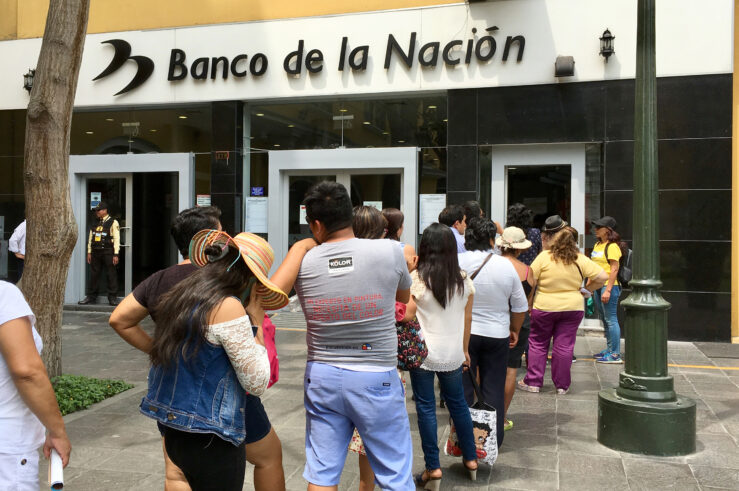Showing results for: “digital markets act”
A Comparison of US and UK Physicians Advice on Nicotine and Vaping
In 2020, an academic paper suggested that more than 80% of U.S. physicians mistakenly thought that nicotine was a carcinogen. The implication of this finding was that perhaps physicians thought vaping (and even nicotine-replacement therapy) to be almost as dangerous as smoking. But physicians are busy people and I suggest that some, maybe most, might ... A Comparison of US and UK Physicians Advice on Nicotine and Vaping
Competition Increases Concentration
A market with 1,000 tiny sellers is not some ideal market. Concentration can be extremely beneficial, leading to economies of scale and stiffer competition to win a big share of the market. Yet the Federal Trade Commission (FTC) and U.S. Justice Department’s (DOJ) draft merger guidelines double down on the idea that concentration is inherently a problem. ... Competition Increases Concentration
Broadband Deployment, Pole Attachments, & the Competition Economics of Rural-Electric Co-ops
In our recent issue brief, Geoffrey Manne, Kristian Stout, and I considered the antitrust economics of state-owned enterprises—specifically the local power companies (LPCs) that are government-owned under the authority of the Tennessee Valley Authority (TVA). While we noted that electricity cooperatives (co-ops) do not receive antitrust immunities and could therefore be subject to antitrust enforcement, we ... Broadband Deployment, Pole Attachments, & the Competition Economics of Rural-Electric Co-ops
South Africa’s Competition Proposal Takes Europe’s DMA Model to the Extreme
The South African Competition Commission (SACC) has proposed changes to the nation’s digital-market regulation that could deal a significant blow to an already struggling South African economy. Ostensibly intended to protect online competition, the SACC’s plan to reshape the business models of “online intermediation platforms” like Google and Booking.com would entail a radical departure from traditional competition regulation. This ... South Africa’s Competition Proposal Takes Europe’s DMA Model to the Extreme
The FT Misunderstands the Economics of Credit-Card Markets
In a recent piece for the Financial Times, Brendan Greeley argues that the misnamed Credit Card Competition Act would reduce inflation. In it, Greeley recycles numerous myths about the nature of credit-card markets that have long been rebutted by serious economic research. Both theory and ample evidence from the United States and other countries shows ... The FT Misunderstands the Economics of Credit-Card Markets
Will the USF Survive the 5th Circuit?
The Telecom Hootenanny is back from a little summer break. As they say on AM radio: “If you miss a little, you miss a lot.” So rather than trying to catch up, let’s focus on some of the latest news from the telecom dancefloor. For this edition of the Hootenanny: we’ve got a big-time challenge ... Will the USF Survive the 5th Circuit?
Antitrust at the Agencies Roundup: Kill All the Widgets Edition
Over the river, into the woods, and down into the weeds we go. There’s a whole lot of drama going on at the Federal Trade Commission (FTC), not least because of recent correspondence between the U.S. House Oversight Committee and FTC Chair Lina Khan that might politely—euphemistically, really—be termed “heated.” But I’m not gonna go ... Antitrust at the Agencies Roundup: Kill All the Widgets Edition
The FTC’s Gambit Against Amazon: Navigating a Multiverse of Blowback and Consumer Harm
The Federal Trade Commission (FTC) is reportedly poised some time within the next month to file a major antitrust lawsuit against Amazon—the biggest yet against the company and the latest in a long string of cases targeting U.S. tech firms (see, for example, here and here). While specific details of the suit remain largely unknown ... The FTC’s Gambit Against Amazon: Navigating a Multiverse of Blowback and Consumer Harm
Antitrust and FCC Oversight Are Needed to Promote Broadband Deployment in the Tennessee Valley
In late June, Sen. Mike Lee (R-Utah) sent a letter to Assistant Attorney General Jonathan Kanter arguing that the U.S. Justice Department (DOJ) needs to investigate the Tennessee Valley Authority (TVA) and its local power companies (LPCs) on grounds that abuses of the pole-attachment process appear to be slowing broadband deployment. Given that Congress has prioritized subsidizing broadband access ... Antitrust and FCC Oversight Are Needed to Promote Broadband Deployment in the Tennessee Valley
Does ‘Open Finance’ Promote Competition or Facilitate Free Riding?
Financial technology, or so-called “fintech,” is disrupting the financial sector, and that’s a good thing. Fintech services are making finance more digital and more user-friendly. This, in turn, has led to reduced transactions costs and increased levels of competition, innovation, and financial inclusion. Alas, the emergence of fintech has also been accompanied by a rising ... Does ‘Open Finance’ Promote Competition or Facilitate Free Riding?
Uber and the Mill of Sanssouci
Freedom of enterprise is considered a second-class freedom in Spain, rather than a fundamental right. It is clear that this has been the view not only of successive Spanish governments since the current Constitution was promulgated in 1978, but also of the judges of the Supreme Court of Spain (Tribunal Supremo) and the Constitutional Court ... Uber and the Mill of Sanssouci
Antitrust at the Agencies Roundup: The Joint FTC/DOJ Guidelines to Nowhere (or Nowhere Good) Edition
The FTC and DOJ have done it: on July 19 they released the long awaited (or dreaded) draft merger guidelines, which . . . well, could have been worse, given current agency leadership, but could have been better (as demonstrated by the certainly imperfect, but still better, 2010 guidelines they replaced). Jumping on the agencies’ ... Antitrust at the Agencies Roundup: The Joint FTC/DOJ Guidelines to Nowhere (or Nowhere Good) Edition















